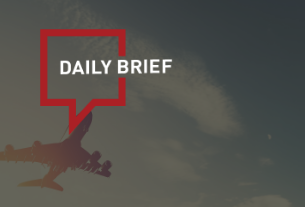UK-based lawyers at Expedia, Priceline and TripAdvisor are rubbing their hands with glee at the possibility the UK government’s Competition Authority might launch an investigation into the entire online travel market.
The recommendation that “the Competition and Markets Authority urgently order a market investigation into the online travel agent sector” comes on the back of a year-long House of Lords call for contributions into the European Commission’s “Online Platforms and the Single Digital Market” proposals.
An 878-page PDF document has been released which aggregates the written and oral evidence submitted by interested parties, including Google, Airbnb and Skyscanner, among others.
The Lords have also interpreted the evidence to present a report to Parliament which will be used as the basis for a debate (assuming that the UK is still part of the European Union after the 23 June referendum).
Political machinations and processes aside, the actual contributions made by the online travel firms reveal how they view the European Commission and, to a lesser extent, each other.
Google began with a fairly provocative “Google believes that there are flaws in the European Commission’s (EC) attempted definition of ‘online platforms’ and uses its definition of Netflix as an example of how out of touch the EC is.
However, the conciliatory line that “the ambition of the Digital Single Market Strategy is one that we support and share” is never far from the surface.
In its verbal evidence Google’s external relations manager EMEA Jon Steinberg gave this support some context:
“It is important to remember that part of the digital single market debate is about making opportunity for European businesses even better. The United States has more than 300 million consumers under one regulatory regime [and is] a very attractive market. Europe at the moment is a much less attractive market – 28 rulebooks, different regimes, some countries having more than one privacy regulator…”
Airbnb is also politely dismissive of the EC, suggesting that its assumptions around the collaborative economy are questionable and that, from its perspective, “this is an opportunity for the Committee to reflect on the extent to which existing legal and regulatory frameworks already apply to collaborative economy platforms.”
Skyscanner is another participant in the debate and is probably the most confrontational (relatively), starting off by “registering [its] disappointment that as one of the few ‘home-grown’ online platforms, Skyscanner was not included within the extensive list of online platforms used as examples.”
It then goes on to explain the difference between OTAs, metasearch providers, travel suppliers and online marketplaces as an example of how vague the term “platform” is and repeats the idea that “a ‘one size fits all’ approach to regulation is very challenging.”
In the section around “competition and dominance”, Skyscanner has a go at Google, saying that “Google’s own flight search product is promoted as part of the ‘sponsored’ search results before the user is provided with the natural search results. This gives them an unfair advantage…”
OTAs are also accused by Skyscanner of abusing their dominance via MFN clauses, meaning “prices offered on other platforms, including metasearch operators, are required, by virtue of a hotel’s contractual relationship (or otherwise), to be higher than the prices on the dominant OTA’s site(s).”
Whether or not the UK’s competition authority launches an investigation into the online travel sector and whether or not that investigation results in any material changes to how the sector operates remains to be seen. It’s taken the UK authorities thirty years or so to not decide about another runway in the South East so chances are the OTAs are unlikely to be overly concerned today.
An Expedia official says in a statement:
“We are happy to see the House of Lords European Union Committee report on online platforms reach the conclusion that national-level approaches to the regulation of online platforms threatens to undermine the European Commission’s plans to create a Digital Single Market.
“Expedia believes the same approach argues against a UK-specific travel market investigation by the Competition and Markets Authority (CMA), especially while the European Competition Network (which includes the CMA) is currently gathering travel market data in a coordinated, pan-European way, in close coordination with the European Commission.
And as for the European Commission’s decision on and implementation of a single digital market strategy, that could arrive even later than the first plane landing at Heathrow’s third runway.
Read original article




